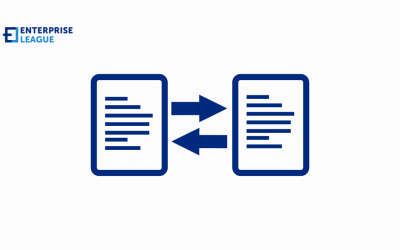If you are planning to relocate your business between the states or within your state, you may encounter tax deductions for some or all of your business. To better familiarize yourself with the process, it’s better to consult a tax expert like a tax attorney to tell you the regulations for the tax deduction of business moving expenses.
But before you decide to seek professional advice from a tax expert. Additionally, if you would like to find out just how much this move will cost, that’s as simple as calling up your local moving company like the plano moving service and having them issue you a quote. That way you can have all of your information in order when you speak to your attorney.
What you need to know about business moving expenses tax deduction
Here are explained the fundamental questions that you should know about tax deductions for business moving expenses if you have decided to relocate your business.
Are all business moving expenses tax deductible
However, like most other tax-related deductions, the business moving expenses you can deduct should directly relate to the business.
For example, you can deduct the costs of relocating your business to a new premise, including but not limited to the following:
- The cost of finding a replacement business premise
- Property appraisal
- Relocation-related fees
- And any other business-related moving expenses
The most important thing to note about deducting business moving expenses from your tax bill is that the expenses you deduct should be necessary and non-capitalizable under no other tax code section. You also cannot deduct personal moving expenses.
Additionally, to deduct business moving expenses, you must demonstrate proof of the incurred payment; thus, it is imperative to keep meticulous business records, especially for the direct costs involved in moving a business.
Let’s focus on what specific business moving expenses are tax-deductible and which ones are not from a business owner’s perspective–since taxation is a crucial cost of business that every business owner should know.
Tax-deductible business moving expenses
This may include the cost of moving office supplies and tools, such as work-related equipment, computers, office equipment, furniture, collections, inventory, and parts from one business location to the other.
For example, anything related:
- Any brokerage commissions you pay when finding the new location
- The cost of surveying the new space
- Business equipment loading and transportation
- Unpacking and settling into a new business premise
The cost of buying or renting a new location may also be deductible. However, remember that you will need excellent expense records for the over 17 tax deductions you can make as a business owner.
You can easily tax-deduct all business moving expenses if your business is a state-registered LLC or corporation, including location scouting, transportation, and loading and unloading costs against your business income.
What’s not tax-deductible as a business moving expense
Anything not directly related to moving a business is not tax-deductible.
That means you cannot make tax deductions for personal moving expenses unless you’re military personnel–because of the 2017 Tax Cuts and Jobs Act that suspends filling out form 3903 for everyone else. Additionally, you must meet certain criteria before deducting business moving expenses if you’re an entrepreneur, solopreneur, or a 1099 business owner–freelancer, contract worker, etc.).
For example, you must meet the time/distance test. This test dictates that to qualify for a deduction, the new business premise or place of business–perhaps your residence–must be at least 50 miles farther from your currently-stated business residence. For the “time test,” you should have worked for at least 39 weeks full-time during the first year, or 78 weeks for the first two years, according to the IRS, to qualify for personal moving expenses deductions.
If you do not move within one year from the date you began working, you may not deduct personal moving expenses.
How to claim business moving expenses tax deductions
Fundamentally, the most important thing you need to remember about deducting business moving expenses is that you can deduct any necessary expense involved in moving your business.
If you’re reading this article because you’re still in the “I’m planning to move my business” phase, consider using a moving expense calculator. A good moving expense calculator can give you a rough estimate of how much it would cost to move your business; a calculator can be especially convenient if you’re an entrepreneur who uses a residential property for business purposes.
Most importantly, remember that only necessary business moving expenses are tax deductible; you cannot claim tax deductions for personal moving expenses.
Conclusion
Relocating your business can be an expensive investment and entails so many logistical challenges. That is why it is necessary to have good knowledge of the whole process of tax deduction. So, once you’ve rounded up all your business moving expenses, work with your tax adviser to successfully claim them on your return.
More must-read stories from Enterprise League:
- Learn about all the tips and apps you need to successfully manage a remote team.
- The only list of novels for entrepreneurs that you will ever need.
- Unique and profitable drone business ideas you should be aware of.
- Innovative small business growth tips that will take you to the next level.
- Implement a CRM strategy for your business using this guide.
Related Articles
PDFs and the debate between tradition and innovation
Curious about the future of PDF? Learn about its integration with new technologies and explore some practical PDF tips to leverage all the power of this format!
The 10 Ds of entrepreneurship: Why are they important?
Are you familiar with the 10 Ds of entrepreneurship? Let’s see if you possess some or all of them that will launch you for success.
Optimizing performance and reliability in managed file transfer systems
Optimizing the performance and reliability of MFT systems is a continuous process that requires attention to infrastructure, software and strategic processes.
PDFs and the debate between tradition and innovation
Curious about the future of PDF? Learn about its integration with new technologies and explore some practical PDF tips to leverage all the power of this format!
The 10 Ds of entrepreneurship: Why are they important?
Are you familiar with the 10 Ds of entrepreneurship? Let’s see if you possess some or all of them that will launch you for success.






